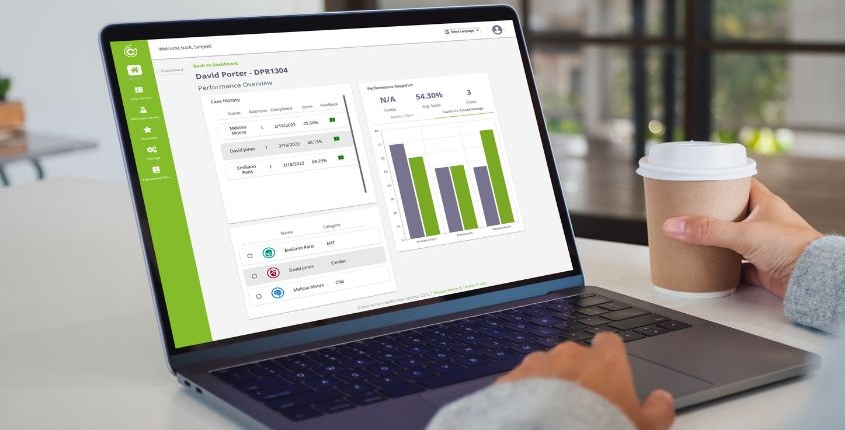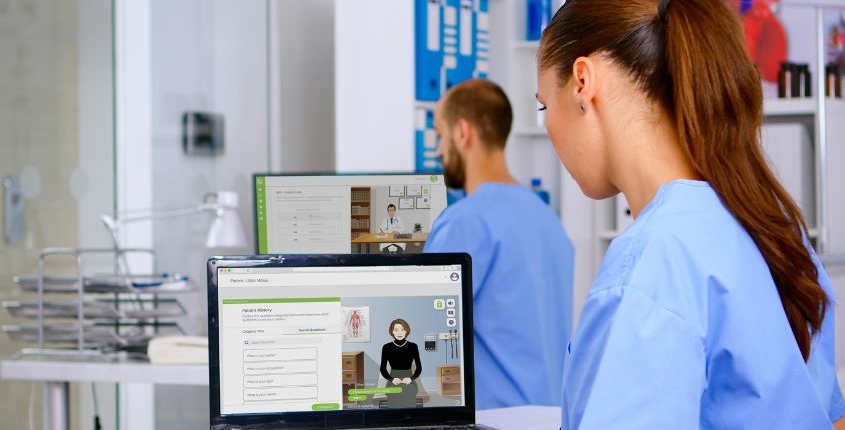Experiential Learning in a Virtual Hospital
What is Experiential Learning?
Experiential learning is the process whereby students ‘learn by doing’ and actively engage in reflecting on their experience using critical analysis.
Experiential education is a teaching philosophy that informs many methodologies in which educators purposefully engage with learners in direct experience and focused reflection in order to increase knowledge, develop skills, clarify values, and develop people’s capacity to contribute to their communities.
Flashy designs vs. Supporting Experiential Learning
To stand out in an ever-growing digital world, we focus on experiential learning covering every detail of the patient experience, from patient history to physical examination and diagnosis, over flashy designs and bulky apps. Not to say that an app isn’t in our future! However, currently, we have a team of passionate doctors, surgeons, medical professionals, talented developers and business managers working behind the scenes to ensure each case accurately represents real-life patients with their medical conditions. Our focus is on the student’s learning experience.
CyberPatient was founded by faculty and designed by medical professionals to support medical education. This gives our team the advantage of understanding that medications, procedures, and gold standards differ worldwide. So, we work with institutions to find the ultimate way to use the cases in our virtual hospital to support the learning objectives for specific rotations. In addition, we help institutions create personalized experiences and custom classes to support their students in gaining preclinical to post-clinical skills. As a result, faculty members feel confident that their students have a robust experiential learning tool.
Virtual Patients, Real Experience
CyberPatient knows that virtual simulation will never replace the real thing, and that’s not our objective! Instead, we aim to provide an accessible tool for all types of learners where they can continually and safely practice their clinical skills before, during and after their rotations. It’s a tool to actively engage in experiential learning and enhance skills while building confidence for treating real patients.
Socially, it can be daunting for some learners to communicate confidently and efficiently with patients and colleagues. By providing virtual patients to learn and practice clinical and communication skills used daily by doctors, students will feel more comfortable being presented with a similar situation in real life!
“The most poignant takeaway I have from CyberPatient is the fearlessness it has installed in me in regards to making mistakes. CyberPatient teaches you that mistakes are actually stepping stones to progress and excellence. Some may argue that there is nothing worse than a brilliant mind constrained by fear.”
Maryam Mohammed – 3rd year medical student, South Africa
Bridging the Gap between Theory and Practice
Bridging the gap between textbooks and real-life experiences gives students an advantage to further their success. The clinical decision-making skills students gain while using CyberPatient help them increase their clinical accuracy and boost confidence. Through experiential learning, users develop a logical approach to patient-presented problems while actively using didactic reasoning and compiled thinking to analyze the information to diagnose and treat patients confidently.
CyberPatient will continue to create and offer even more resources to help advance medical education worldwide. We are excited to see the impact on our future healthcare professionals and their patients – this is just the beginning for all of us.






